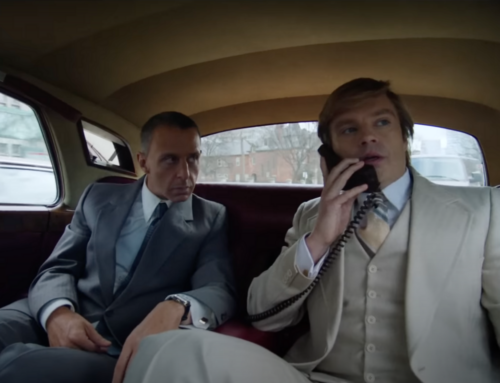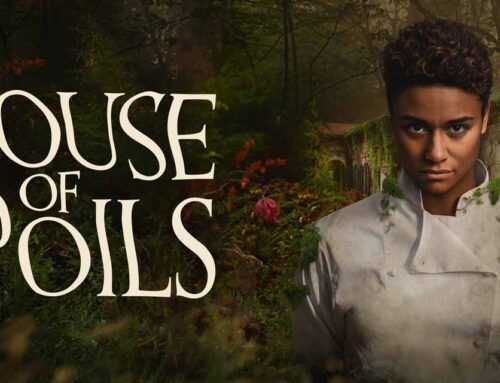I’ve seen what feels like a thousand movies in the last three weeks, the result of a tidal wave of year-end releases before the holidays and in time to qualify for the Oscars while remaining fresh in viewers’ minds. Not all of the following are Oscar-worthy, but here’s my take on a few you might be thinking about now!
WONKA: I have never been a fan of this tale, though I, like most folks LOVE chocolate in all its forms hot and cold, from the lowly drugstore candy bar to my beloved French, Belgian, and/or Burdicks confections. I did not love WONKA the third movie adaptation based on Roald Dahl’s dark 1964 children’s novel. WONKA is a prequel to 1971’s Willie Wonka & the Chocolate Factory starring Gene Wilder in the title role, and Tim Burton’s 2005 Charlie and the Chocolate Factory starring Johnny Depp as Willie Wonka. The only thing that could have induced me to see this holiday musical about the origins of an eccentric and magical chocolatier– who eventually saw to it that bratty children got their just rewards–was Timothy Chalamet as Wonka.
I like my chocolate dark and rich. This prequel was neither. Chalamet in his singing debut, sings the treacly songs on key and doesn’t appear to forget any of his dance steps. The songs were memorably dull. The screenplay left me wanting answers– why did Wonka and company return to their imprisonment once they’d found a way out? Which brings me to one bright spot: Olivia Colman as dastardly innkeeper Mrs. Scrubbit who tricks Wonka and company into slave labor. I also got a kick out of seeing Hugh Grant cut down to size as an errant and mean-spirited Oompah Loompah. The sets, too, were praiseworthy–elaborately whimsical, Eastern European inspired, and real eye candy– not CGI’d. Your kids might like it. I was bored.
And here’s another origin story, but DO NOT bring the children to this one: POOR THINGS. It made a big splash at the Cannes Film Festival. This feminist Frankenstein story is wildly imagined by filmmaker Yorgos Lanthimos who gave us the splendid “The Favourite.” Here he re-teams with Emma Stone who plays a pregnant woman who dies by suicide but is brought back to life by an eccentric and cruelly-scarred scientist named Dr. Godwin Baxter played by Willem Dafoe. The mad scientist transplants the woman’s fetus’s brain into its mother’s head and we watch Godwin’s “monstrous” new creation “Bella” develop as a human being in the world.
The film is a riotous allegory of creation, birth, death, sex, freedom, marriage, love, power, and life in general as Bella grows unfettered, exploring her appetites physical and mental, with abandon! When Bella discovers her sexuality she indulges herself shamelessly, running off with a libidinous dimwit played by Mark Ruffalo until she outgrows him and continues her evolution toward independence and intellectual freedom. The film is wildly funny and almost gruesome too. It has much to say about the way society’s strictures warp our bodies and minds. The film’s bluntness is the shock. Bella’s exploration of sex, for example, is stripped of judgement, affording her the opportunity to ascribe whatever value she alone places on the act– and so on. Stone’s performance is bald and brave, a tapestry of tics and and fits, as she tries to synch up her mind and body, lurching from one stage of development to another and coming into her own as an independent being. The film provokes serious thought about the nature of existence as it circles back to the original suicide and the wounded creator who made the best of whatever spare parts were available in a damaged world.
AMERICAN FICTION is at least two things at once: an hilarious satire that takes aim at Black stereotypes, inside a larger family drama about a writer reconnecting with his own complex and accomplished family, giving the lie to reductive racist tropes. Based on the novel “Erasure” by Percival Everett who co-wrote the screenplay, the satire is the engine, the family drama is the heart, and while it’s tough to keep this vehicle tonally on track, co-writer/director Cord Jefferson in his directorial debut almost gets there while offering no easy answers.
Jeffrey Wright stars as Thelonious “Monk” Ellison a lit prof and writer whose heady books on esoteric subjects don’t sell, while books about black crackheads and deadbeat dads with titles like “We’s Lives in Da Ghetto” by Sintara Golden (Issa Rae) are flying off the shelves where the “Black” books are kept, fawned over by white publishers and movie producers hoping to cash in on a guilt-ridden white market. These scenes are as cringe-worthy as they are hilarious.
In a fit of pique, Monk decides to write a “Black” book himself and to his shock, it’s a hit–according to his agent,”the most lucrative joke [Monk’s] ever told! ” That he is able to keep his identity as a best-selling author secret stretches credulity, but his deepening relationship with his somewhat estranged Boston-based family rings true. These scenes are warmly fleshed out by a stunning cast. His mother played by the divine Leslie Uggams is suffering from Alzheimer’s; he navigates a prickly but loving relationship with his vibrantly funny sister played by Tracee Ellis Ross; and Sterling K. Brown in a bravura performance as his gay brother Clifford unloads years of angst amidst a minefield of hidden truths about their parents in a roller coaster of wrenching scenes. Add to this a budding romance with the beautiful and brilliant neighbor across the street played by Erika Alexander. In the face of all, Wright’s Monk is a cool mix of aplomb, defiance, and vulnerability.
The final scenes rush headlong to a variety of conclusions as the “movie within the movie version” of his bestseller tries out various endings. But the real conclusion leaves us with ever-deepening questions. When Monk finally confronts best-selling author Sintara Golden, who turns out to be as intellectually sophisticated as he is, about why she has apparently “sold out,” her answer baffles. She retorts, “Is it bad to cater to people’s tastes?” I say yes, if those tastes reinforce a demeaning American fiction. Doesn’t her answer undercut the film’s basic premise? Does the movie want it both ways? The best movies create conversation. See this one and let me know what you think!





